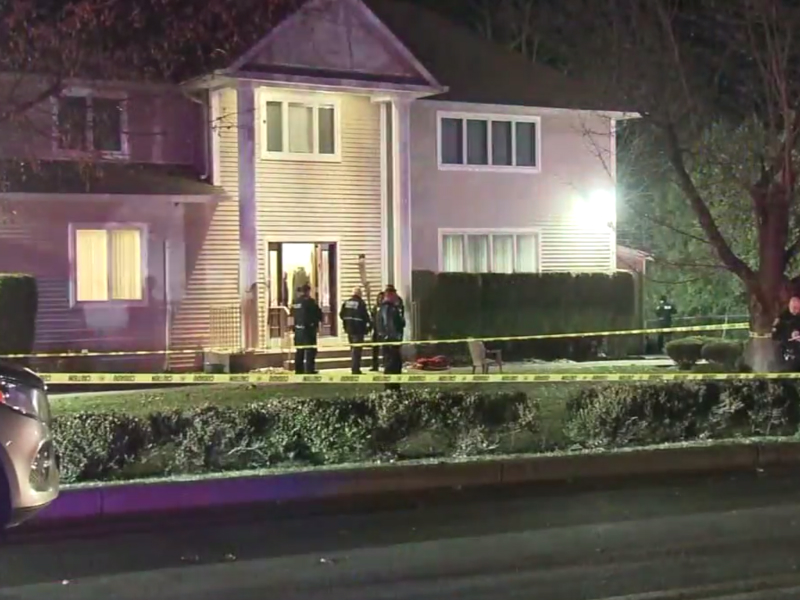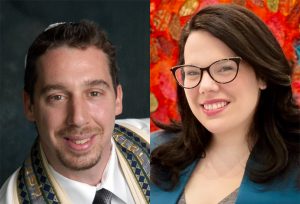Amidst a major increase in anti-Semitic incidents in the United States, two particularly brutal anti-Semitic acts occurred in December in the Greater New York area. Both incidents, one in Jersey City and the other in Monsey, were hate crimes targeting ultra-Orthodox Jews, and resulted in death and severe injuries. Exhibiting a level of violence unparalleled in recent memory, they left the Jewish community reeling from the savagery of the attacks. There was palpable fear that it could be dangerous to publicly identify as a Jew.
Together with other local community leaders, Noam Gilboord, a Toronto native who serves as chief operating officer of the Jewish Community Relations Council of New York (JCRC), was searching for a way to help people cope with the devastating impact of the crimes and an emerging sense of insecurity as Jews. He realized that it was time for a mass show of solidarity within the Jewish community. One particular Twitter post he saw announced, “It’s time to march.”
On Dec.30, Gilboord spoke with Hindy Poupko, originally from Montreal, who serves as deputy chief planning officer at UJA-Federation of New York. Along with their executive leadership, they determined that mass community mobilization was necessary. Within hours, both UJA and JCRC began organizing this mega-event. Less than a week later, on Jan. 5, over 25,000 people marched, shoulder to shoulder, in the cold across the Brooklyn Bridge to attend a rally in Cadman Plaza.
The two organizations mobilized quickly to ensure the event’s success. They secured permits from the Parks Department, security co-ordination from NYPD, production equipment, co-sponsorships from hundreds of Jewish and non-Jewish organizations, and worked around the clock to secure the attendance of elected officials and an all-star cast of speakers. The march was promoted extensively on social media and in the press and a large supply of colourful signs saying, “No Hate, No Fear,” were created.
Among the scores of elected officials present were New York State Gov. Andrew Cuomo, Mayor Bill de Blasio, senators Chuck Schumer and Kirsten Gillibrand, and many members of Congress. Entertainers included the Maccabeats, Matisyahu, and Shulem Lemmer.
Leaders from faith groups outside the Jewish community were also well represented and Frankie Miranda, president and CEO of the Hispanic Federation placed a kippah on his head “in solidarity with his Jewish brothers and sisters.” Several pastors from African-American and Caribbean-American communities in Brooklyn and the Bronx stood with the Jewish community opposing anti-Semitism. Jewish participants in attendance, regardless of political affiliation or religious observance joined together for this event, making a strong statement that anti-Semitism must not be tolerated.

In many ways, Gilboord has been preparing for this moment his entire life. In 1998, at age 13, he spoke before a rally of over 3,000 people at Queen’s Park supporting fair funding for Jewish schools. He credits this event as the start of his political involvement with Jewish advocacy. During high school, he was recruited and trained as a peer counsellor at the Community Hebrew Academy of Toronto and would go on to join the student board of Hillel at the University of Toronto, where he was elected president in his senior year.
It was there that he began to develop advocacy skills that bode him well in the future, especially in combating the emergent BDS movement on campus. As a volunteer in political campaigns, he learned about the importance of organizing and mobilizing in the community. After interning at the Israel Antiquities Authority, he was accepted to the graduate level Hornstein Program for Jewish Professional Leadership at Brandeis University.
“We Jews should not be made to hide our faith or fear for our physical well-being,” he says. “We must not return to a period where anti-Semitic attitudes are tolerated. That never ends well.” Indeed, he says, “while anti-Semitism continues to evolve, we too must evolve our response. Today, part of that means proudly and publicly showing who we are and what we stand for.”







